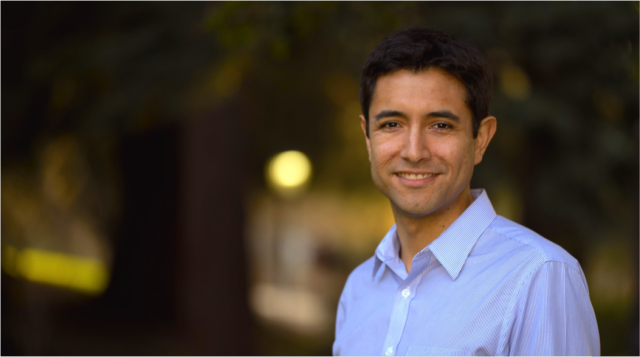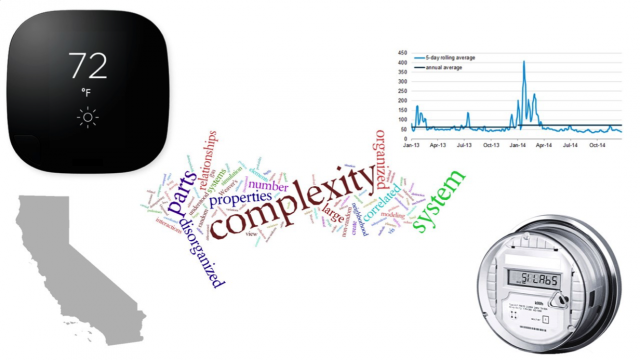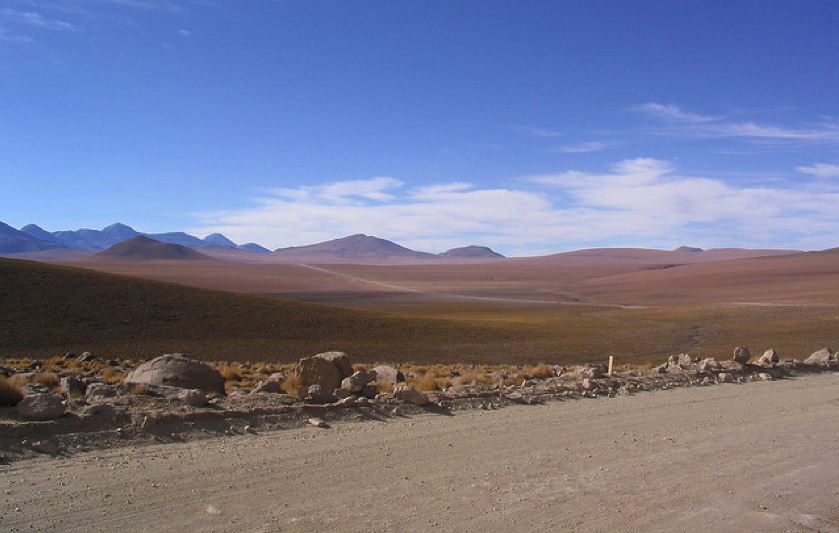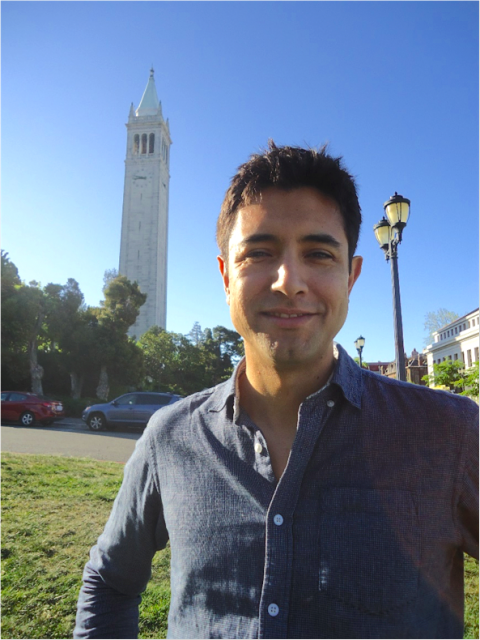On Rate Regulation in Modern Electricity Sectors (PhD ’17)
Felipe was a Ph.D. Candidate with ERG. His research seeks to improve the understanding and organization of energy systems, leveraging methods, and concepts developed in fields including operations research, microeconomics, and industrial organization. Felipe’s work puts a particular emphasis on the development and application of data driven techniques to improve the analysis and design of regulatory frameworks governing the activity in and around energy systems.
Felipe has more than four years of professional experience working as a consultant and R&D engineer in the Chilean mining sector. He holds an M.Sc. in Industrial Engineering and Operations Research from UC Berkeley, a Master’s in Operations Management and a B.Sc. in Industrial Engineering from Universidad de Chile.
STUDENT SPOTLIGHT
At ERG, Ph.D. candidate, Felipe Castro, focuses on how policy and technology can result in a cleaner energy sector. In this interview, Felipe explains how ERG, as an interdisciplinary program, challenges researchers “to go one step further” than others:
“One of the main advantages of being with ERG is that the program is designed so that students can get the most out of the resources that UC Berkeley can offer. This is especially valuable in a leading educational and research institution, where many departments are top notch worldwide. Our core faculty encourages ERG students to train themselves in different disciplines and conduct research with faculty from multiple programs. The one requisite we have is that, at the end of the day, we produce high quality work that influences policy and, ultimately, makes our world a better place.”
Read more about Felipe’s research and experience at ERG below.
 What have you been working on that most excites you?
What have you been working on that most excites you?
Across the globe, energy systems are experiencing dramatic technological transformations and evolving in a very dynamic fashion. Considering the scientific consensus on climate change, many countries are pushing policies and developing strategies aimed to promote and sustain cleaner energy sectors. Policies and regulations that govern the interactions among different stakeholders are important determinants of the evolution of these systems.
However, because of the complexities involved, our understanding of the implications of policy on how agents interact with energy systems and, ultimately, on how energy systems evolve is rather limited.
Fortunately, we are in a unique point time, where massive data availability is allowing researchers to explore in a much deeper manner the mechanisms influencing complex systems. The use of “Big Data” is now pervasive in many fields, however there are still many opportunities to innovate in the analysis of regulatory policy in the energy sector exploiting Big Data.
What I am most excited about is leveraging Big Data and state-of-the-art computational and algorithmic power to study the impacts of different policies and regulations in the evolution of energy systems.
My thesis work develops modeling and computational tools, and uses them to conduct an empirical analysis of regulatory policy in the context of California’s electricity sector. More specifically, I am looking at how dynamic rate structures combined with home automation technologies can be central to a cleaner energy sector.
I believe this research has great potential. It can provide policymakers across the globe with valuable insights regarding how electricity rates strongly influence the value of home automation, a potentially key resource for a cleaner energy system.
 Five central elements present in Felipe’s current research work.
Five central elements present in Felipe’s current research work.
What difference has researching with ERG made for you?
ERG has made me grow as a researcher. During my time in UC Berkeley, I have had the opportunity of being enrolled in two disciplinary programs on campus. Advancing knowledge in a specific discipline is a highly demanding and intellectually challenging task, however your job ends when the community of the discipline understands and values your work. ERG requires every researcher to go one step further. Our program challenges us to demonstrate the value of our work not only to a disciplinary community but also to a broad audience of investigators with very different backgrounds and approaches to conducting research.
Why did you choose ERG?
ERG is a leading interdisciplinary program focusing on technology and natural resource policy and management. Our faculty and alumni are making important contributions in very different fields, and our graduate students are a unique mix of diverse ideas, skills, and interests. One of my main reasons for choosing ERG was having the opportunity and, perhaps, being pushed to interact with the diversity of perspectives we have in our department. I wanted to expose myself to high quality thinkers with very different positions, which shook my preconceptions. I wanted to learn from them and grow as researcher and as an individual.
 Atacama desert in Chile, one of the places on earth with the highest solar radiation and minimal cloud cover.
Atacama desert in Chile, one of the places on earth with the highest solar radiation and minimal cloud cover.
How has your background been a part of your research and time at ERG?
I come from Chile, a Latin American country with a somewhat conservative culture. Even though we have the human capital to progress more quickly in terms technological development, we are lagging behind more advanced economies such as California. I believe one of the reasons is the lack of attention to the value that technology can provide in solving important societal problems. This is especially relevant in the Chilean energy industry, because our country has a unique availability of solar resources. Even though this type of generation is clean, it requires more advanced technology in order to fully exploit all its benefits. One important motivation for my research work is producing compelling evidence that shows the value of technological development.
What advice do you have for prospective students?
One of the main advantages of being with ERG is that the program is designed so that students can get the most out of the resources that UC Berkeley can offer. This is especially valuable in a leading educational and research institution, where many departments are top notch worldwide. Our core faculty encourages ERG students to train themselves in different disciplines and conduct research with faculty from multiple programs. The one requisite we have is that, at the end of the day, we produce high quality work that influences policy and, ultimately, makes our world a better place.
 Early in the morning on campus. As the sun rises, everyone gets ready for a new day of discoveries and excitements.
Early in the morning on campus. As the sun rises, everyone gets ready for a new day of discoveries and excitements.
In what ways has the work that you’ve been involved in at ERG been “cutting edge”?
My research work attempts to produce evidence on the role of dynamic rates in unleashing the potential of home energy management systems. Since neither dynamic rates nor the most advanced versions of home energy management systems are massively deployed, this research work attempts to develop credible counterfactuals that allow comparing the electricity systems under different rate regimes. Some researchers have approached this question before from a theoretical perspective and with highly stylized numerical analyses. My research work departs from previous studies in three ways. It approaches the question with a level of detail never seen before. It develops a modeling framework that combines microeconomics, game theoretical concepts and building science in order to capture the technological complexities emerging in the electricity demand sector. And finally, my investigation develops new algorithms in order to handle the level of detail of the models and scale of data used in my study.
Who have you been working with at ERG?
I have been working mostly with my adviser, Duncan Callaway. I am very fortunate of having had the opportunity of conducting my Ph.D. work under his supervision. He has always given me sensible and intelligent advice and has always been very encouraging with my research work. This has kept me highly stimulated during my time at ERG. I am also grateful of having discussed my research ideas with Daniel Kammen, who always has sharp observations and whose comments I consider highly valuable. Even though I have not worked directly with the rest of the faculty, their opinions during my Ph.D. seminar presentations have helped me to have a much better perspective of the importance of my work and its place in a broader context.
What is next for you?
In the short to medium term, I will continue contributing to the regulatory policy debate in the energy industry. At this point in my career, I am quite open to the opportunities that academia, the private or public sectors can offer. I believe that my years at UC Berkeley, especially at ERG, have given me the skills and resources necessary to generate valuable contributions in each of these arenas.
[Front page image source: krheesy]  What have you been working on that most excites you?
Across the globe, energy systems are experiencing dramatic technological transformations and evolving in a very dynamic fashion. Considering the scientific consensus on climate change, many countries are pushing policies and developing strategies aimed to promote and sustain cleaner energy sectors. Policies and regulations that govern the interactions among different stakeholders are important determinants of the evolution of these systems.
However, because of the complexities involved, our understanding of the implications of policy on how agents interact with energy systems and, ultimately, on how energy systems evolve is rather limited.
Fortunately, we are in a unique point time, where massive data availability is allowing researchers to explore in a much deeper manner the mechanisms influencing complex systems. The use of “Big Data” is now pervasive in many fields, however there are still many opportunities to innovate in the analysis of regulatory policy in the energy sector exploiting Big Data.
What I am most excited about is leveraging Big Data and state-of-the-art computational and algorithmic power to study the impacts of different policies and regulations in the evolution of energy systems.
My thesis work develops modeling and computational tools, and uses them to conduct an empirical analysis of regulatory policy in the context of California’s electricity sector. More specifically, I am looking at how dynamic rate structures combined with home automation technologies can be central to a cleaner energy sector.
I believe this research has great potential. It can provide policymakers across the globe with valuable insights regarding how electricity rates strongly influence the value of home automation, a potentially key resource for a cleaner energy system.
What have you been working on that most excites you?
Across the globe, energy systems are experiencing dramatic technological transformations and evolving in a very dynamic fashion. Considering the scientific consensus on climate change, many countries are pushing policies and developing strategies aimed to promote and sustain cleaner energy sectors. Policies and regulations that govern the interactions among different stakeholders are important determinants of the evolution of these systems.
However, because of the complexities involved, our understanding of the implications of policy on how agents interact with energy systems and, ultimately, on how energy systems evolve is rather limited.
Fortunately, we are in a unique point time, where massive data availability is allowing researchers to explore in a much deeper manner the mechanisms influencing complex systems. The use of “Big Data” is now pervasive in many fields, however there are still many opportunities to innovate in the analysis of regulatory policy in the energy sector exploiting Big Data.
What I am most excited about is leveraging Big Data and state-of-the-art computational and algorithmic power to study the impacts of different policies and regulations in the evolution of energy systems.
My thesis work develops modeling and computational tools, and uses them to conduct an empirical analysis of regulatory policy in the context of California’s electricity sector. More specifically, I am looking at how dynamic rate structures combined with home automation technologies can be central to a cleaner energy sector.
I believe this research has great potential. It can provide policymakers across the globe with valuable insights regarding how electricity rates strongly influence the value of home automation, a potentially key resource for a cleaner energy system.
 Five central elements present in Felipe’s current research work.
Five central elements present in Felipe’s current research work. Atacama desert in Chile, one of the places on earth with the highest solar radiation and minimal cloud cover.
Atacama desert in Chile, one of the places on earth with the highest solar radiation and minimal cloud cover. Early in the morning on campus. As the sun rises, everyone gets ready for a new day of discoveries and excitements.
Early in the morning on campus. As the sun rises, everyone gets ready for a new day of discoveries and excitements.